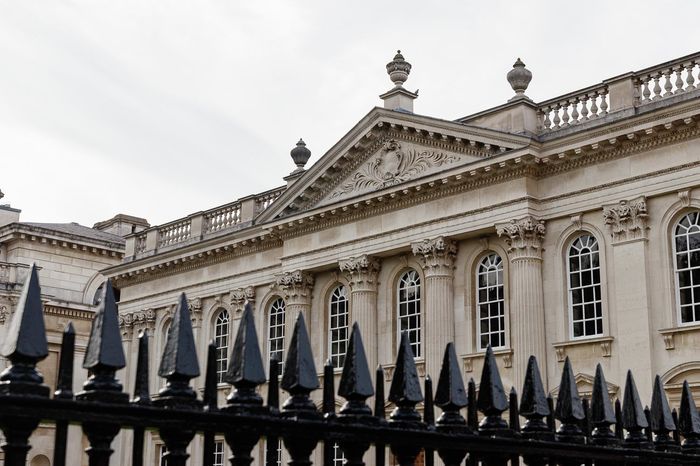Cambridge doubles down on freedom of speech rules
The University has stuck to a code based on government policy that has since been paused due to concerns around hate speech

Cambridge University has implemented its new freedom of speech code, in spite of the legislation it was based on being suspended by the new Labour government.
The new code was designed to bring the University’s freedom of speech protections in line with the Higher Education (Freedom of Speech) Act 2023, which was put on hold last month.
Education Secretary Bridget Phillipson said she had decided to “stop further commencement” of the Act, “in order to consider options, including its repeal”.
But the University’s free speech code was implemented on August 1st, without the legislation underpinning it being in force.
The principles of the code were based on the Act, which was designed to allow academics to express “controversial or unpopular opinions within the law, without fear of intolerance or discrimination”.
Phillipson has claimed that the legislation’s provisions “could expose students to harm and appalling hate speech on campuses,” when putting the law on hold.
A University spokesperson had previously claimed that the code acted to “update existing policies to comply with the Act”.
With these new laws not being implemented, the code will draw on the Education Act 1986 for legal enforcement. However, the language and principles of the controversial new policies have remained in the code.
In the new code, Cambridge pledges that its teaching will “ensure […] freedom of speech and academic freedom within the law”. The code also states that the University will not enter into non-disclosure agreements (NDAs) over complaints of sexual harassment or bullying, and will “identify and manage” risks to freedom of speech posed by funding, donations, or education partnerships.
Freedom of speech had previously caused controversy within Cambridge’s academic community. In May, Nicholas Guyatt, director of undergraduate studies for History and a fellow at Jesus College, claimed that the Philosophy Faculty could not fire controversial “race realist” research fellow Nathan Cofnas due to the now-paused act. Prof Guyatt alleged that the law “seems designed precisely to perpetuate this farce”.
Nathan Cofnas was the subject of major criticism earlier this year after he stated that “the number of black professors at Harvard would “approach zero” in a meritocracy,” which was labelled as “abhorrent racism” by Homerton College’s Master Simon Woolley.
Following the Act being put on hold, at least 342 academics have signed an open letter to Phillipson, calling on her to reinstate the act. The letter claimed that academics had been “hounded, censured, silenced or even sacked over the last 20 years for the expression of legal opinions,” which they claim the Act would protect.
The Act would have allowed the Office for Students to fine universities and student unions for failing to uphold free speech.
22 Cambridge academics signed the letter, including controversial Divinity fellow James Orr, who sparked outrage last year for “racist” and “dehumanising” comments towards Arabs and Palestinians.
Freedom of speech debates have also centred on the Cambridge for Palestine (C4P) encampment, which is set to be dismantled following the University’s pledge to review its arms investments. In a statement announcing the review, Cambridge revealed that the Office for Students (OfS) had written to the University, and other institutions, to remind it of its “legal duty to protect freedom of speech and the right to protest within the law”.
The future of the legislation is currently unclear, with the Department for Education reportedly set to “consider their options” including repeal of controversial powers introduced by the last government.
A spokesperson for the University of Cambridge told Varsity: “The University’s Code of Practice on Freedom of Speech amalgamates and updates several pre-existing University documents and policy statements on free speech.”
“The Code now clearly sets out in one place the University’s commitment to freedom of speech and how to manage processes surrounding it. It was approved via the University’s democratic body, the Regent House, in June and came into effect on 1 August 2024 as had been proposed,” they continued.
 News / Caius mourns its tree-mendous loss23 December 2025
News / Caius mourns its tree-mendous loss23 December 2025 Comment / Yes, I’m brown – but I have more important things to say22 December 2025
Comment / Yes, I’m brown – but I have more important things to say22 December 2025 News / Clare Hall spent over £500k opposing busway 24 December 2025
News / Clare Hall spent over £500k opposing busway 24 December 2025 Interviews / Politics, your own way: Tilly Middlehurst on speaking out21 December 2025
Interviews / Politics, your own way: Tilly Middlehurst on speaking out21 December 2025 News / King appoints Peterhouse chaplain to Westminster Abbey22 December 2025
News / King appoints Peterhouse chaplain to Westminster Abbey22 December 2025









